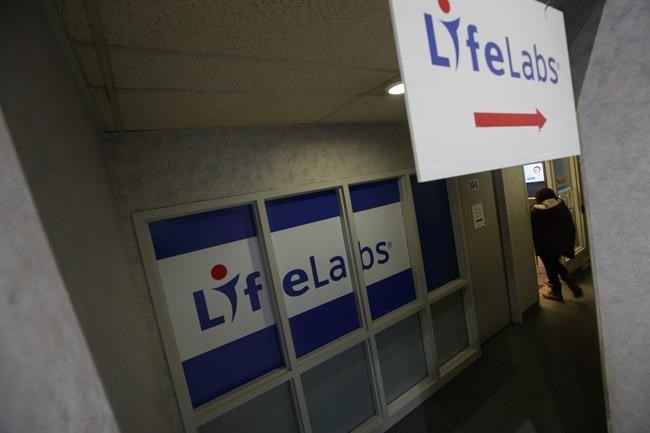A lab testing company that suffered a cyberattack last year is going to court to challenge the jurisdiction of B.C.’s Civil Resolution Tribunal to hear a complaint from an alleged victim of the attack.
In October, LifeLabs discovered the cyberattack on its computer system that might have breached the privacy of up to 15 million of its customers by stealing their personal information including their names, addresses and health card numbers.
The vast majority of affected customers of LifeLabs, which provides general diagnostic and specialty lab testing services, live in B.C. and Ontario.
In a petition filed in B.C. Supreme Court, the company says it is investigating the attack along with police, and there is a joint investigation by the privacy commissioners in B.C. and Ontario to address the interests of everyone affected.
In December, Roman Cremonese of Victoria filed a claim against LifeLabs at the Civil Resolution Tribunal, alleging that his personal information had been accessed during the attack. Cremonese claimed to have been exposed to a risk of identity theft, cybercrime and extortion. He is seeking $5,000 in general damages.
The Civil Resolution Tribunal is Canada’s first online tribunal and works to resolve a number of matters including motor vehicle disputes up to $50,000 and small claims disputes up to $5,000.
In its petition, LifeLabs argues that the tribunal lacks the jurisdiction to adjudicate Cremonese’s claim, because the Privacy Act specifies that only the B.C. Supreme Court might do so and that allowing the tribunal to proceed would not be in the interests of justice and fairness.
The Cremonese claim “engages a complicated factual matrix — one requiring the consideration of a large body of highly technical expert evidence — that the [tribunal’s] streamlined process is ill-equipped to accommodate,” says the petition. “In addition, in [B.C. Supreme Court], any information LifeLabs is compelled to disclose would be subject to, at a minimum, the implied undertaking of confidentiality that does not apply” to the tribunal.
In addition to Cremonese’s claim, there have been five proposed class-action lawsuits filed in B.C. Supreme Court in connection with the LifeLabs cyberattack, according to the petition.
For efficiency and to avoid inconsistent judicial findings, the Cremonese claim should proceed together with whichever of the proposed class-action lawsuits remains following decisions by the court, it says.
The tribunal said that it would be inappropriate to comment as the application is before the court.



